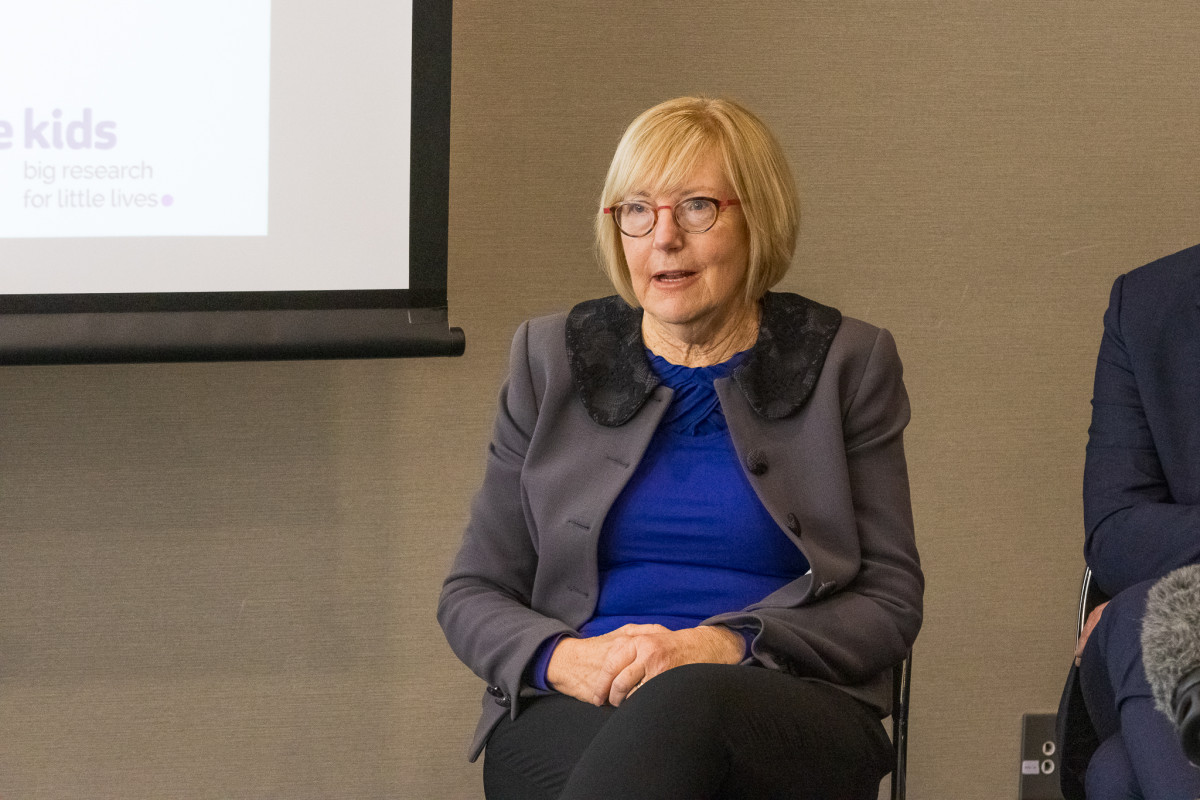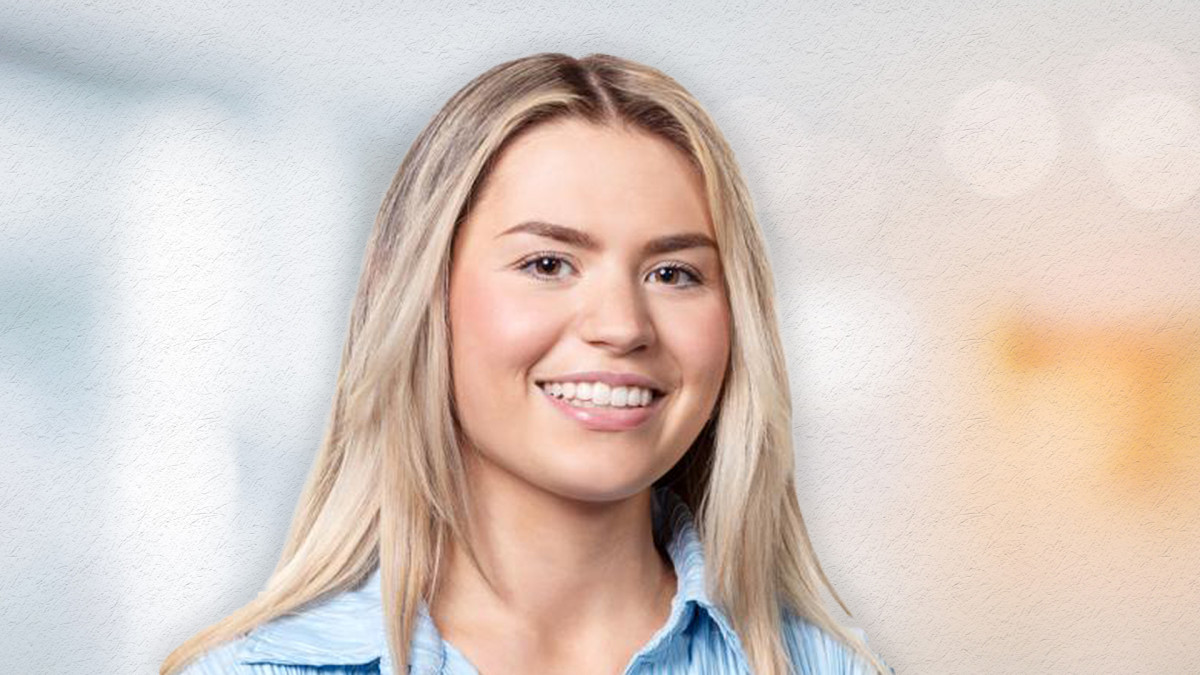Eden Grimwood says she can’t recall a time in her life when she didn’t struggle with her mental health in some way, which she now knows was anxiety and burnout.
Because she wasn’t aware of the available support, it wasn’t until she was in her teen years that she was able to access mental health services.
“When I was 16 and in [mental health] services, I received a diagnosis that I was autistic, so that was a big thing,” the now-20-year-old says.
“[That was] probably why I struggled so much from such an early age, I didn’t have the knowledge I needed and my whānau didn’t have that to know how to support me.”
‘Dramatic increase’ in mental health hospitalisations
A new report from Cure Kids, a charity that funds child health research, shows hospitalisations for mental health concerns or intentional self-harm have increased.
Their 2023 State of Child Health report reveals a fifth of young people (aged 15-24) reported psychological distress in 2022/23, quadrupling over the last 12 years.
Girls and young women are also nearly two times more likely to be hospitalised for mental and behavioural disorders compared to their male counterparts.
For children living in socioeconomically deprived areas, it found European New Zealanders were significantly more likely to receive mental health services or be hospitalised compared with Māori and Pasifika children.
Cure Kids former chair of child and youth mental health and emeritus professor Sally Merry says the dramatic increase surprised her.
“I was expecting it to be worse, but it’s more than I expected,” she says.

Cure Kids former chair of child and youth mental health and emeritus professor Sally Merry. (Photo by Vivien Beduya)
Why the numbers are getting worse
While she acknowledges the reasons behind the numbers are complex, Sally says it correlates to social media's direct effects, the pandemic's adverse impacts, climate change, and increasing societal polarisation.
She says it has to do with tolerance for emotional distress and that resilience should ideally be reinforced for children at a preschool level – like their ability to manage big emotions, make mistakes and move on from them.
But she says this would be particularly challenging for children and adolescents living in poverty.
“If you are living in a very poor home, and you’re overcrowded, and your parents or caregivers are very stressed and ill, then it’s very difficult for people to meet the emotional needs of their children, or for their children themselves to have hope.”
Sally says our mental health services are “gridlocked” and children aren’t getting the correct care they need.
There isn’t a good systematic service that provides appropriate care at each level, she says, especially for families living in poverty.
“If you don’t know where you’re going to get the next meal, when you’re sharing a house with far too many people [and] where there’s mould on the walls, it’s very difficult to be a very calm and consistent parent.”
In a statement, Mental Health Minister Matt Doocey says improving the effectiveness of mental health and addiction support is one of his top priorities.
“I am committed to listening to those with lived experience, their families and to looking across our services at what works for people, and what doesn’t.”
He adds that the recent report released by the Auditor General provides insight on how to support youth mental health better and they’re working to respond to its recommendations.
“Other initiatives underway and available include the delivery of Mana Ake, the Access and Choice programme and the Ministry of Health has provided advice on a prevalence survey to better understand the needs of children and young people.”
Despite the challenges faced by a lot of young people, Sally says it’s the young people themselves who give her hope about the future.
“There are even more [young people] who are coping really well, who have come through the pandemic, who’ve picked things up and who’ve kept on going,” she says.
“I think that’s really inspiring and I think we need to get alongside them.”

Eden Grimwood is now a youth consumer advisor for Whāraurau. (Photo: supplied. Background photo: istock. Graphic design: Vivien Beduya)
‘Mental health requires a holistic approach’
After Eden’s autism diagnosis, she says she had to learn to step away from things that weren’t right for her.
One of those things, she says, was to leave traditional public school at the age of 16. She tried correspondence school but it wasn’t a good fit, and so she hasn’t been in formal education since.
“The school system just wasn’t designed in a way that was supporting me in my health.”
Now she’s a youth consumer advisor for Whāraurau, a Government-funded organisation that gives resources and training to support the infant, children, adolescent and youth mental health workforce.
She says she’s really passionate about her job because she can use her lived experience accessing mental health services and bring that perspective into her work.
“It goes to show that I didn’t take the traditional pathway of school and then university, but there was a better pathway for me and better for my health, and something that I could do that I was good at.”
In her job, she says young people have told her they don’t feel they’re at a “bad enough” point that they can access support, which is a misconception.
She encourages everyone to access support at any point they feel the need to, adding that this stigma was one of the reasons she didn’t reach out for help until her teen years.
Eden says she finds it most concerning that she’s yet to come across a young person who hasn’t struggled with their mental health.
“Mental health requires a holistic approach and it’s so much bigger than just the mental health sector,” she adds.
“What’s impacting young people and what’s affecting their wellbeing and their mental health, it’s all these other factors, so it’s education, it’s what’s going on in the world, it’s their other health.
“Mental health doesn't just mean bad mental health, but that it’s something we all have and we all need to support ourselves and different people [will need] different levels of support in different things.”
Where to get help:
- 1737: The nationwide, 24/7 mental health support line. Call or text 1737 to speak to a trained counsellor.
- Suicide Crisis Line: Free call 0508 TAUTOKO or 0508 828 865. Nationwide 24/7 support line operated by experienced counsellors with advanced suicide prevention training.
- Youthline: Free call 0800 376 633, free text 234. Nationwide service focused on supporting young people.
- OUTLine NZ: Freephone 0800 OUTLINE (0800 688 5463). National service that helps LGBTIQ+ New Zealanders access support, information and a sense of community.
More stories:
'Don't suffer alone': Managing mental health in a cost-of-living crisis
New survey shows rising costs are hurting Gen Z workers’ mental health.
Racism impacts health, wellbeing and identity of rangatahi Māori
It shouldn't fall on young Māori to fight structural racism, researcher says.
'Sucked into the trap': How social media can impact body image
New research shows young people know social media can negatively shape the way they see themselves.